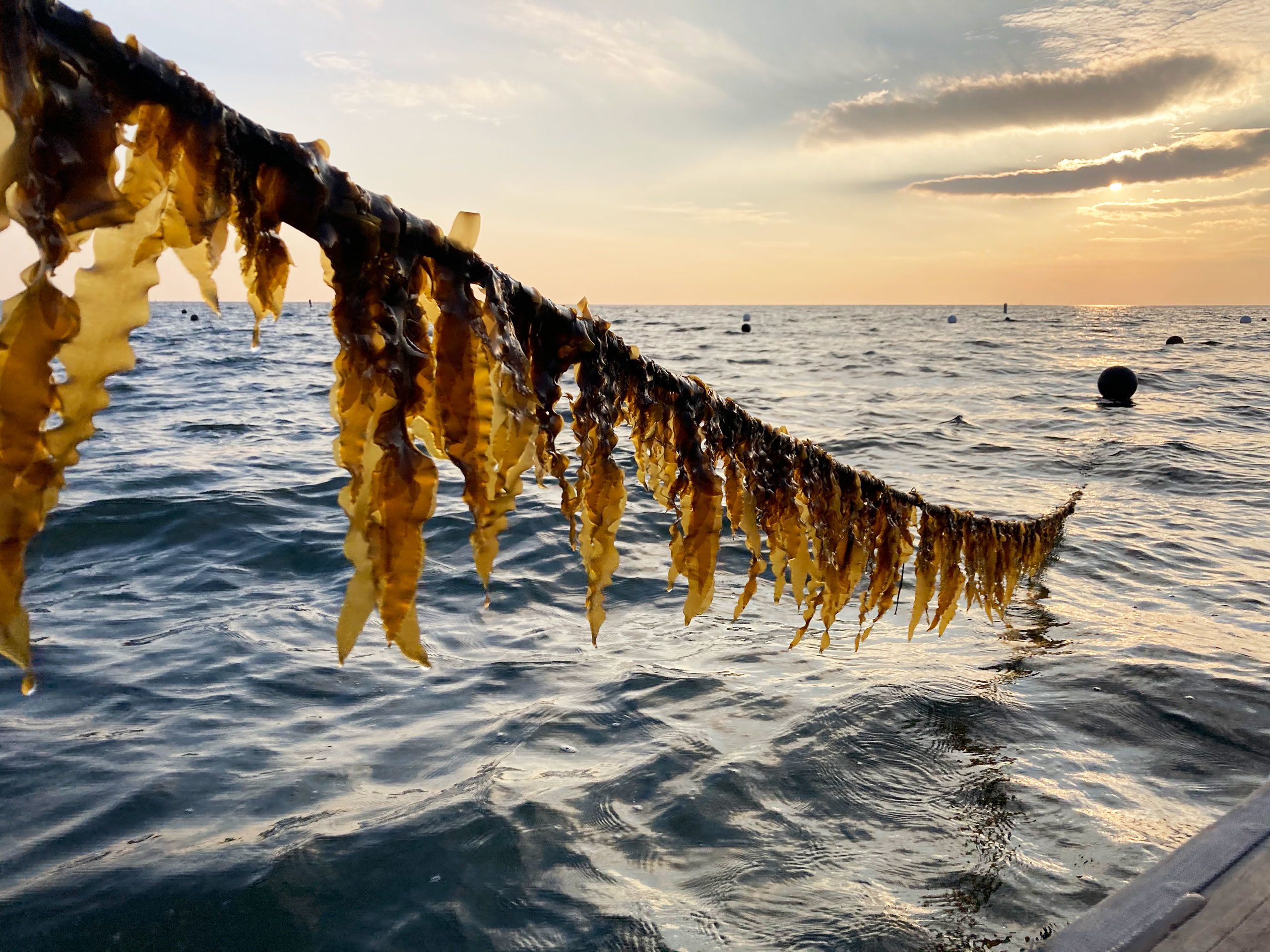The U.K. Seafood Innovation Fund (SIF) and U.K. Sustainable Aquaculture Innovation Centre (SAIC) have released a new case study on Scottish kelp farming which the organizations say could represent a “step-change for the Scottish kelp industry.”
The project was led by Isle of Skye, Scotland-based kelp producer KelpCrofters, and gave researchers an opportunity to study three key challenges that affect the emerging Scottish kelp industry: limited harvest windows, rapid biofouling, and a lack of processing infrastructure for harvested kelp.
The project involved a custom-built pontoon boat as well as laboratory studies which tested new harvesting, preservation, and processing techniques for kelp, addressing these issues.
KelpCrofters provided seaweed for the study as well as developed the harvesting pontoon. The project was supported by processing firms EcoCascade and Seaweed Enterprises, while Scottish Agronomy conducted barley field trials. Fermentation support was lent by the Danish Technological Institute and PRM Waste and Efficiency Technologies consulted to engineer and scale the project.
Most commercial kelp producers must harvest their product in a very short window to avoid biofouling, or organism growth, and the study hoped to explore ways to improve harvest efficiency without enabling this process, which lowers the value of the kelp, often making it unsuitable for human consumption.
Other goals of the project were to identify uses for lower-grade kelp in value-added products, develop fermentation techniques that would preserve harvested kelp, and find opportunities to commercialize kelp-derived liquids that are byproducts of kelp farming and preservation.
To meet the first of these goals, KelpCrofters developed a harvesting pontoon which included a semi-submerged barge that allowed kelp to be stored at sea.
Laboratory trials went on to explore storage and fermentation techniques that could preserve kelp in less costly and energy-intensive ways than traditional drying methods.
These tests also analyzed byproducts for safe inclusion in feeds and other ingredients, assessing heavy metal content and iodine levels.
Liquid byproducts were studied for their potential in biostimulants and cosmetics, fast growing markets which might offer opportunities for commercialization.
The study’s authors said that despite their efforts, biofouling remained a challenge, and that “markets for lower-grade kelp should be further explored” so that farmers can use kelp that contains organism growth.
The authors said harvesting pontoon was especially successful, improving efficiency and reducing losses during bad weather.
Ensiling and fermentation were also found to be successful methods for kelp storage.
“These methods enable long-term, low-energy storage of wet kelp, reducing waste and seasonal pressures while enhancing market flexibility,” the study said.
Fermentation also made kelp more digestible, and reduced heavy metal content.
Finally, the study’s authors said that liquid extracts from fermented and ensiled kelp showed great promise for use in biostimulants and cosmetics.
“Early field trials and lab tests indicate strong potential, setting the stage for future product development and commercialization,” the study said.
Source - https://www.seafoodsource.com













